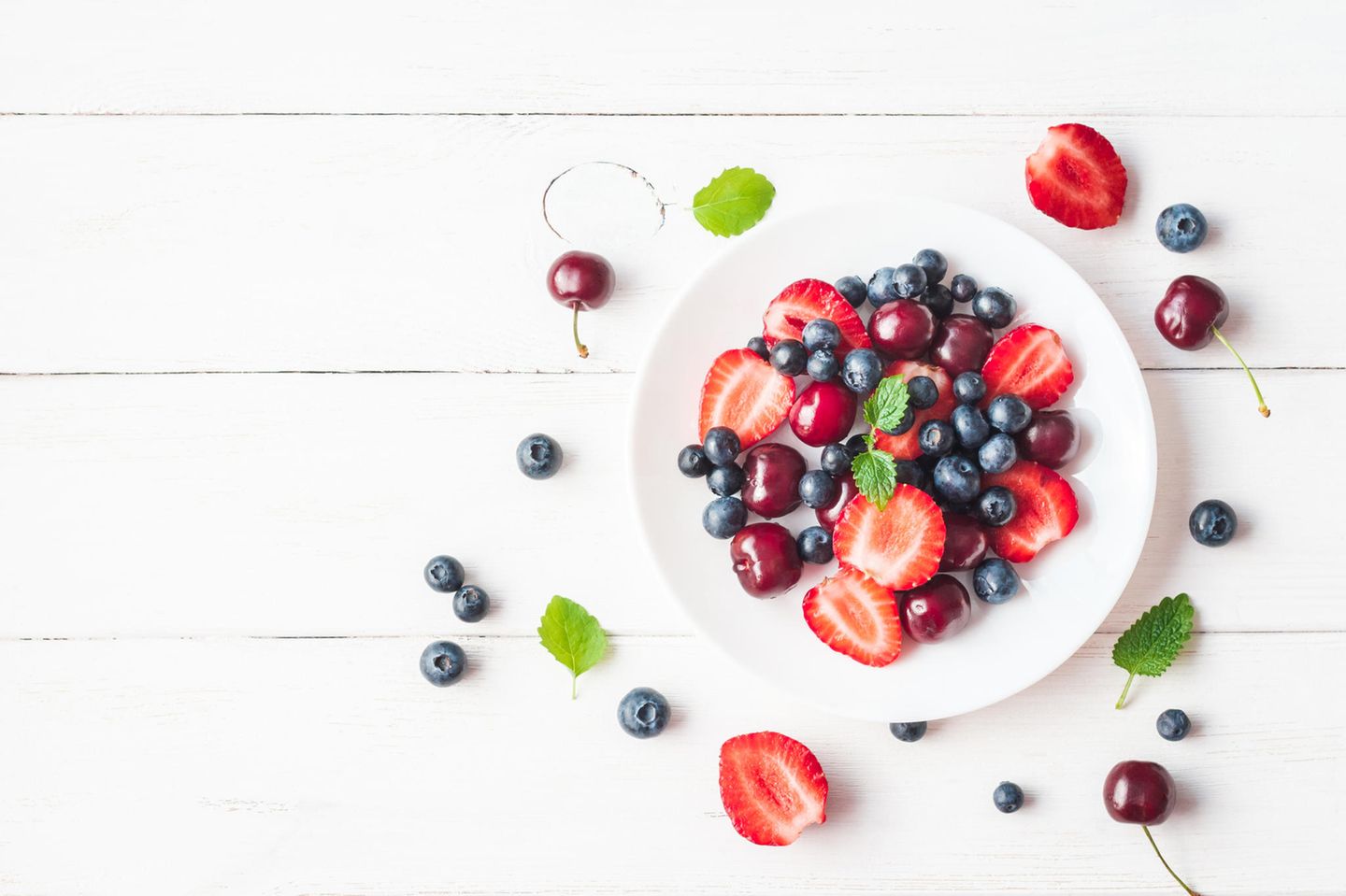
More energy and fewer weight thanks to the alkaline fasting cure: Developer Sabine Wacker tells us how the concept works and what you have to consider!
What is alkaline fasting?
Alkaline fasting is fasting with fruits and vegetables: A gentle and enjoyable method to counteract acidification and to lose weight. A cure is straightforward and can be easily integrated into everyday working life.
During the cure, only base formers such as fruit, vegetables, herbs, sprouts, some nuts, and high-quality oils such as linseed, olive, or rapeseed oil are served. Acid generators such as meat, sausage, dairy products, white flour, whole grain products, pasta, rice, eggs, coffee, sweets, and alcohol are taboo.
Particularly noteworthy: drink two and a half to three liters per day! Only in this way can unwanted substances leave the body. Pure spring water and weak herbal tea are permitted.
Avoid hyperacidity: the ten rules for alkaline fasting.
- Be careful with raw vegetables: Although raw vegetables are the healthiest way to eat vegetables and fruits, caution is advised. People with sensitive intestines and food allergies are significantly affected by this.
- The last meal before 6 p.m .: may not be feasible for many people, but the rule is: Eat as early and as little as possible in the evening. Because the later you eat, the worse you sleep, since the intestines and liver are busy with digestion.
- Fruits and raw vegetables until 2 p.m. It is generally better for your metabolism if you stop eating raw vegetables or fruit after 2 p.m. Better to use cooked food.
- Vegetables have to be crisp: stewing is the magic word. Those who overcook their vegetables do not take in valuable vitamins. Prepare the vegetables as crispy as possible.
- As little as possible: This is probably the most challenging task: Eat as little as possible and only as much as you need. Stop eating before you feel full because the feeling of fullness usually only sets in after a few minutes.
- No mess: you don't need five types of vegetables or more to have a great taste experience. Less is more: use two or three vegetables, and the result will be the same.
- Season with feeling: Please, the only season slightly. The reason for this: Spices irritate the taste buds and make the feeling of satiety disappear.
- Eat more vegetables than fruit: The fruit content should not exceed twenty percent. If you have a sensitive gastrointestinal tract, you should increase the proportion of vegetables. Basically: The fruit and vegetables should be ripe because only ripe fruit and vegetables are metabolized alkaline.
- Eat with pleasure and appetite: Only reach for the vegetables and fruits that you really need. You are doing yourself and your body a disservice if you consume the dish without pleasure.
- Chew well: "Well, chewed is half-digested" is the most important rule. But what does that mean? Take an apple wedge - you should chew it at least 30 times. Advanced learners manage 60 to 80 times.
